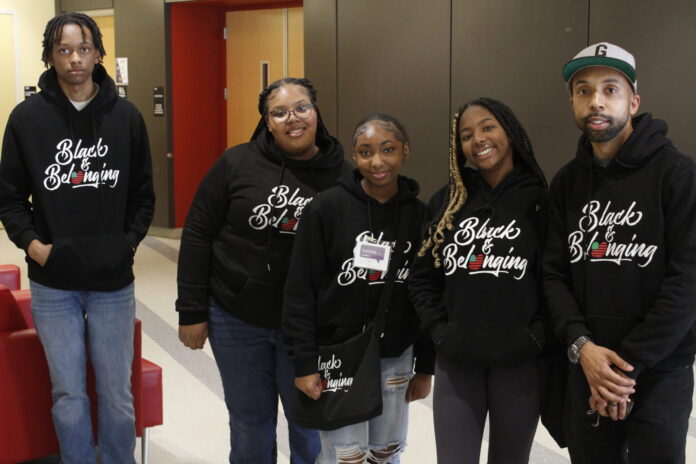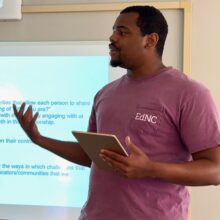Today, Bellen Woodard is a published author, CEO, and entrepreneur who has garnered national recognition for work as the “World’s 1st Crayon Activist.”
In 2019, she was a third-grade student when one moment sparked her desire to change language and access, not only in her classroom, but across the world.
At eight years old, Woodard observed that, “Whenever someone asked for the skin color crayon, we always automatically passed over the peach crayon.” After having a conversation with her mom, she determined that the next time a skin color crayon was requested, she would ask, “Which one?”
“It could be any number of beautiful colors,” Woodard says.
The encounter ignited Woodard’s desire to launch an inclusive school supplies brand and “skin color” crayons. She founded More Than Peach aimed at changing the language and perception around skin color in her own classroom and greater community.
Since then, Woodard’s activism has ventured into dance as well.
Ballet pink refers to the color ballet dancers wear that was traditionally made pink to accentuate and elongate features of European dancers. Having begun her dancing career in early childhood, Woodard coined the term “Ballet Brown” to emphasize the need to expand language and access to dance wear that is inclusive of various skin tones.
“Of course, we still want ballet pink. We still want people with a lot of complexes to look beautiful on stage, but we just want that effect for everybody,” she expressed.
“Ballet Brown” is also the title of Woodard’s upcoming children’s book, set to release in May 2025.

Woodward’s experiences and actions are representative of students’ ability to recognize areas for growth in their environment and enact positive change. This was the focus of we are’s Let’s Talk Racism conference in Greensboro on March 22, 2025.
Woodward was a keynote panelist for the event, which centered on the theme, “Making Space for Today’s Voices: The Student Movement.”
Attendees learned about student-centered and student-led efforts to drive change across North Carolina and beyond.
“We need to always be in support of amplifying student voices.”
Dr. Ronda Taylor Bullock, co-founder and lead curator of we are
Celebrating a decade of impact in education
2025 marks the 10-year anniversary for we are (working to extend anti-racist education), a nonprofit organization that provides anti-racism training for children, families, and educators. Throughout the year, they offer various opportunities such as summer camps, professional development, community caucuses, educator fellowships, and conferences.
This year, we are held its ninth annual Let’s Talk Racism conference. Dr. Ronda Taylor Bullock, co-founder and lead curator at we are, views the conference as a sacred and reaffirming space to be amongst people whose values are “for diversity, for equity, and for inclusion.”
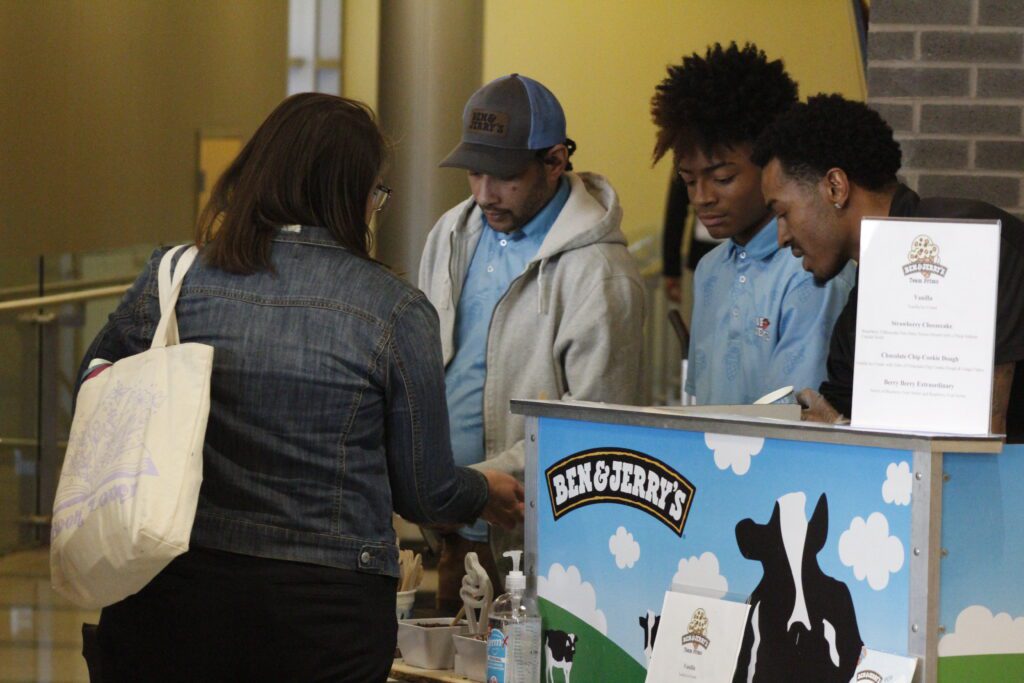
Students, K-12 educators, and other education stakeholders engaged in sessions that collectively focused on dismantling systemic racism in education. The conference featured over 35 panel discussions, networking and organizing opportunities, and even a powerful spoken word performance from we are’s co-founder and truth teller, Dr. Kelvin Bullock.
In the closing lines of his poem, Bullock declared:
“We work to extend anti-racist education, because as we dismantle racism, it benefits the whole population. We work to extend anti-racist education. Don’t fight the very thing that’s going to strengthen this nation.”
Recognizing and amplifying voice
Notably, adults had the opportunity to listen to the experiences and insights of students of all ages. Youth served as panelists and offered their observations of current trends, challenges, and movements for social justice, politics, and education among their respective generations.
Sha’lexus Sanders was also featured on the keynote panel. She is a junior majoring in political science at North Carolina Central University. She serves as the Student Government Association director of political action and community engagement and is the 83rd student body president — the 11th woman in the school’s history.
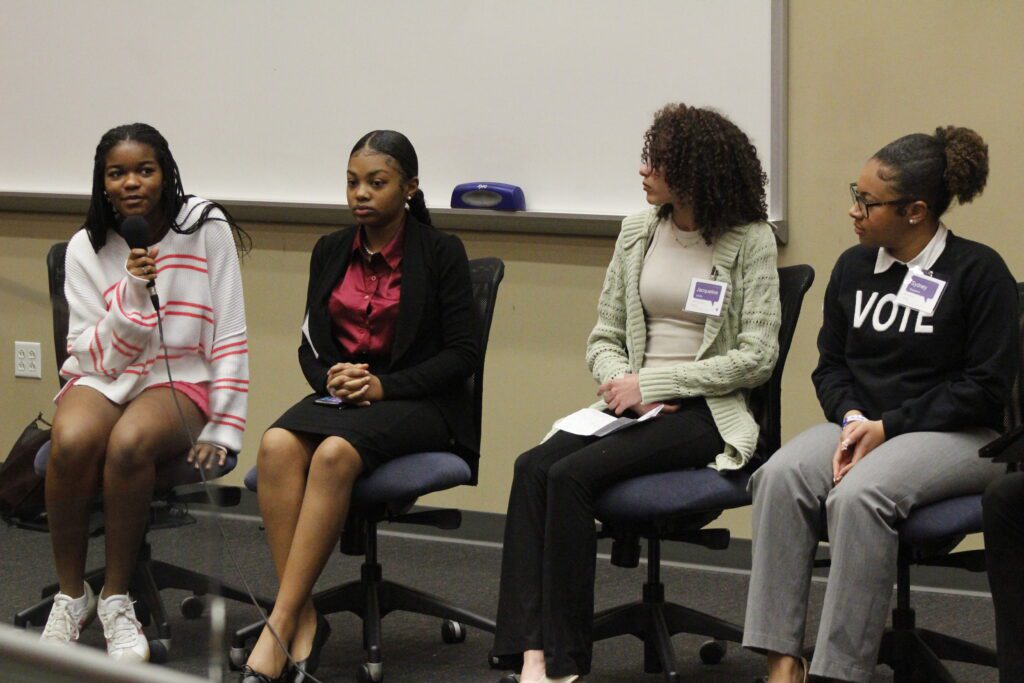
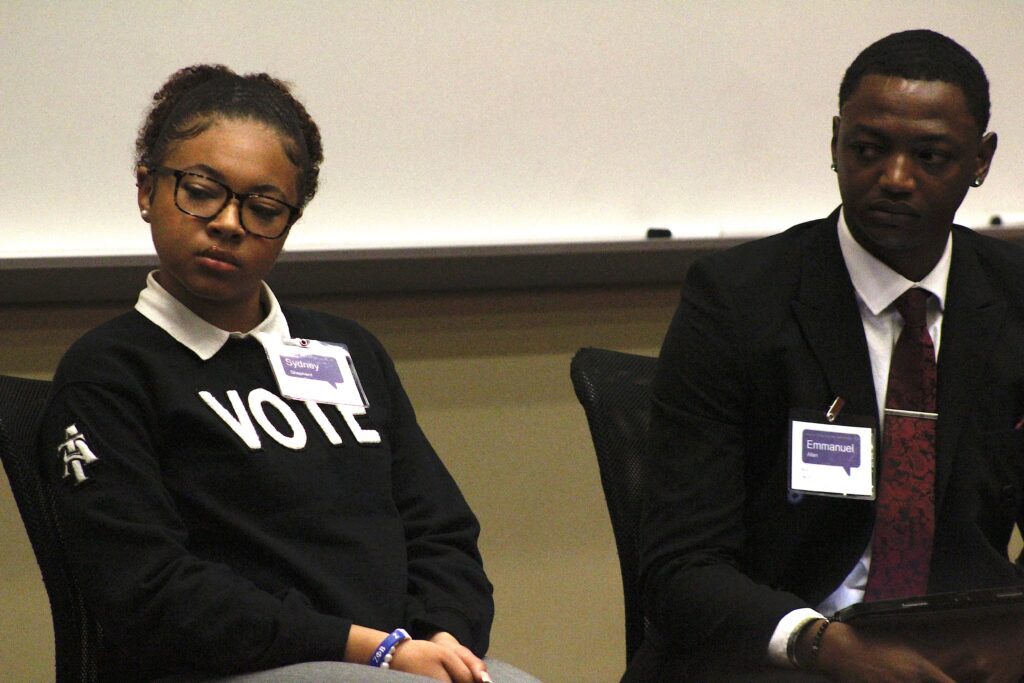

While she has always considered herself to be a young Angela Davis, she credits one of her professors with further propelling her commitment to political engagement and advocacy.
As part of an introduction to political science course, Sanders participated in a debate focused on reparations. It coincided with a larger HBCU debate series in alignment with the film, “The Big Payback,” directed by Erika Alexander and Whitney Dow.
Sanders considered that to be a major stepping stone for where she is today, followed by several fellowship opportunities with organizations such as You Can Vote and NC Black Alliance.
These experiences directly transferred to contributing to voter mobilization efforts during the 2024 election. According to Sanders, the campus experienced a significant decrease in voter apathy and was able to draw in over 1,000 students as a part of the “Soar to the Polls” early voting initiative.
Sanders’ remarks emphasized the need for educators to listen and nurture the leaders of tomorrow. She highlighted her political science professor as a model for how it can be accomplished and the outcomes that can be achieved from the investment.
“She started amplifying the voice I already had but did not recognize,” Sanders said.
Importance of listening to students
“This conference today is centered on behalf of a powerful and necessary idea: listening. Listening to the voices that are too often spoken about but not spoken with. Today, we turn our attention to the insights, experiences, and wisdom of our students — those who navigate our classrooms, walk our campuses, and carry with them the future of education.”
— Dr. Gerrelyn Patterson, chair of the education preparation department at N.C. A&T
According to their website, Black SEL’s mission is to empower Black youth, educators, and communities through culturally responsive social-emotional learning (SEL). Founder and executive director Kristen Hopkins-Vincent expressed that they are focused on “listening to children.” One of the opportunities to listen was presented last year when students at a local high school sought to offer SEL support to other students at their school.
On the panel titled, “Community Rooted Organizations and Organizing,” high school sophomore Adam Douglas spoke about the mental health field day that he helped organize at his school. Douglas, who serves as the vice president of the Black SEL club at his school, shared that they were able to get over 2,000 students across grades to participate. He added that the day wasn’t just about fun or providing students with necessary relief. Rather, the club also focused on training students on various socio-emotional skills they can use in their day-to-day life.
For Hopkins-Vincent, the field day is representative of the power of listening to students and recognizing their ability to organize.
“This is them seeing what they’re learning in the community and saying our internal school community needs this,” she shared.
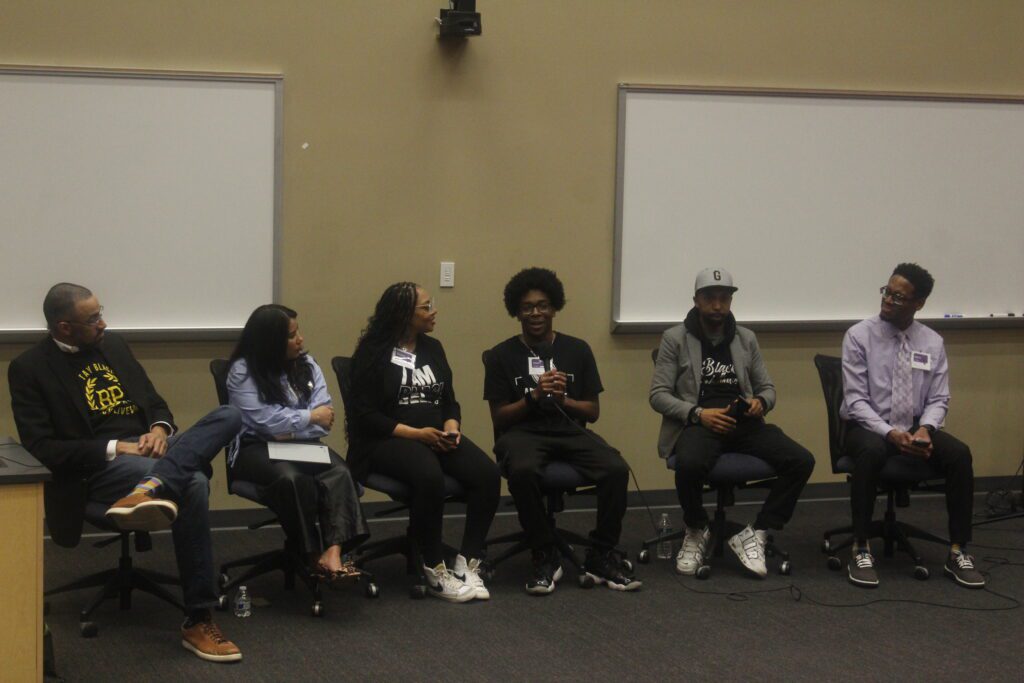
Dr. DeLeon Gray, founder and CEO of Black and Belonging, was a panelist in the same session. In one segment, he offered insight on the success that his organization has had with getting students involved in advocacy work.
Gray says that youth can be energized to lead by giving them options of opportunities to engage in. Additionally, the group developed the term “twinnergy,” which refers to identifying students who already enjoy spending time together and engaging them in activities two at a time. Gray also highlighted the importance of respecting students’ protected time.
“If it’s your advocacy effort versus sports, nine times out of the 10, you’re gonna lose,” he stated. Whether it’s extracurricular activities or other obligations, Gray emphasized the importance of working with students’ schedules in season and engaging them more in the off season.
At the conclusion of the event, Dr. Bullock shared the following about the importance of listening to students:
“We need to always be in support of amplifying student voices. One of my takeaways from them was to trust them. They used the word trust several times, and I think that’s important. Trust that their idea is something to invest in. Trust that their idea is something to hear. Trust that, while their idea and their method may be different from yours, it’s okay to let them build upon whatever it is, wherever they are, and learn from that themselves. So the word trust was very prominent for me in listening to them.”


